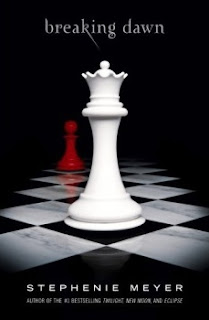The Thinking Aloud team meets “officially” once a week in a dim newsroom tucked away in the basement of the Harris Fine Arts Center on the BYU campus. We kick around ideas. We survey the coming week. We listen to Marcus talk about his kids. Mostly, we sit in a circle with our hands on our chins, wondering how to keep you engaged and excited about our little radio program.
More than that, we want to keep you thinking. We want to stump you and send you back to the drawing board. We want to interrupt that often monotonous orbit of eat, work, pay, save, play, worry, sleep, etc. You could say we’re concerned for your well being. We care about your brain and what it can do.

So, as we tossed around the idea of a Thinking Aloud blog, I must say that I furrowed my brow, scratched my head, and wondered why. The internet seems to have already become a bog of blogs. In the era of microwave everything, including microwave thought, the blog is just another iteration of the media world, a stripped down column that gets info out even faster.
But I finally realized that a Thinking Aloud blog made sense. In fact, I realized such a blog is essential to what we hope to accomplish from right here in Utah Valley, for those who live here and anyone else. I returned to my mentors, the great Joseph Addison and Richard Steele, the guys who understood not only the power of the periodical, but its importance and potential. Can you imagine a New York Times columnist opening his article with a quote from Virgil? Of course not. Check Addison out on Monday, 12 March 1711 (300 years ago!) writing for the Spectator – #10 to be exact:
“As if one, whose oars can scarce force his skiff against the stream, should by chance slacken his arms, and lo! Headlong down the current the channel sweeps it away” (Virgil).
Thinking Aloud is definitely a small skiff of a radio program fighting its way against the main “stream” media. Addison goes on to say:
“Since I have raised to myself so great an audience, I shall spare no pains to make their instruction agreeable, and their diversion useful. For which reasons I shall endeavor to enliven morality with wit, and to temper wit with morality, that my readers may, if possible, both ways find their account in the speculation of the day.”
Addison says lots of other good things (check out Spectator No. 10 here). The point is, Thinking Aloud has raised an audience to itself, maybe not a “great” one in numbers, but certainly a great one for the quality of its thought. There are no major blogs from Utah Valley. Aside from our radio program, the Thinking Aloud blog will hopefully become a useful hub where people can recover themselves “out of that desperate state of vice and folly into which the age is fallen.” Hopefully you will join us now and then for the difficult but refreshing swim against the stream. Hopefully you will share your thoughts, engage in the discussion, and not be afraid to spend more than 60 seconds doing it. At Thinking Aloud, we’ve pretty much tossed the microwave out the window and dug out the ol’ crock pot.
So, let your thoughts stew. Stew a while over other people’s thoughts. We hope you will become as much of a contributor as we are to the process. After all that, a closing sound bite from Addison:
“The mind that lies fallow but a single day sprouts up in follies that are only to be killed by a constant and assiduous culture.”
Who knows what exactly that even means? … that’s why we’re here.
-Brent Rowland
 Classical 89 Thinking Aloud: http://www.classical89.org/thinkingaloud/past.asp?d=12/19/2008
Classical 89 Thinking Aloud: http://www.classical89.org/thinkingaloud/past.asp?d=12/19/2008













































